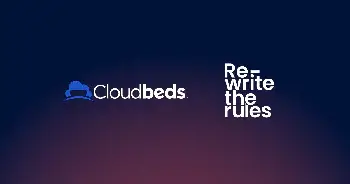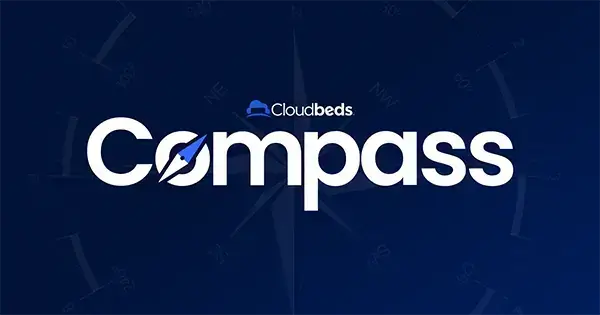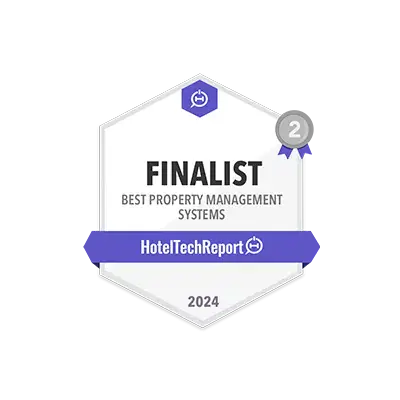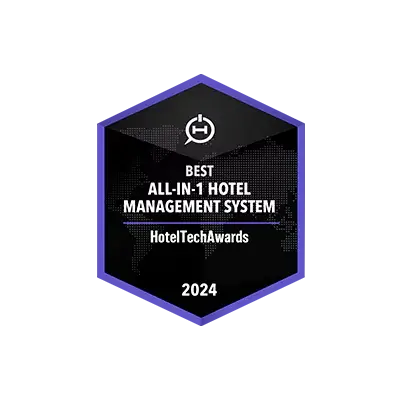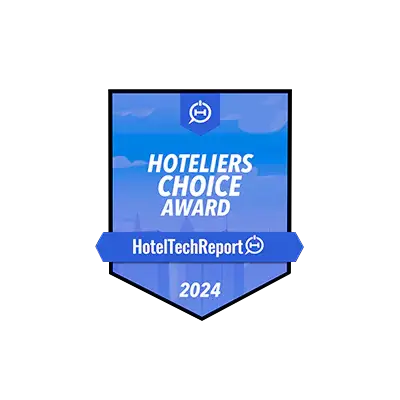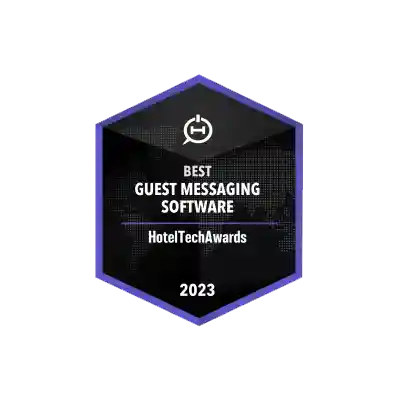
By Lana Cook
The hospitality industry is notorious for the number of time-consuming and tedious tasks that must be completed every single day. From checking in guests and entering reservations to managing rates and assigning rooms, many hotels still perform a lot of manual tasks.
Oftentimes, these tasks overpower hotels’ ability to invest in proper guest communication, marketing activities, and revenue management, which significantly impacts performance and profitability.
Add on top of that more complex distribution environments, changing guest expectations, and sustained labor shortages. To deal with these complexities, hotels must leverage hotel automation.
In this article, we explore the basics of hotel automation and actionable ways that it can streamline hotel operations in 2024.
Hotel automation is the use of machines and computers to conduct tasks typically performed manually by employees to increase productivity and reduce operating costs. While automation has been used in hotels in some form or another for decades – think of washing machines, dishwashers, and even elevators – computer automation can be traced back to the introduction of the hotel property management system (PMS) in the 1980s. Today, hotel automation tools are used to perform or augment an increasing number of tasks, from distribution to revenue management and guest communication. What is hotel automation?
The rise of automation
The hospitality industry has been slow to innovate. Up until a few years ago, hotels had been hesitant to adopt emerging technologies built to automate and streamline operations. When the pandemic hit in 2020, property owners were forced to adopt technology to meet traveler demand for contactless services and offset staffing shortages. In fact, at the International Hospitality Investment Forum in Berlin, the hotel industry was lauded for turning from “technology laggard to innovator.”
Over the years, technology providers have introduced a wide range of functionality to help hotels automate all aspects of operations. While savvy operators are moving to solutions built with automation capabilities in mind, some are still hesitant to adopt new technology.
In this snippet of The Turndown Podcast, Luka Berger, Founder and CEO of Flexkeeping, shares his opinion on why the hospitality industry still resists new technology.
Automation and hospitality
One question that is often top of mind is, how can hotels embrace automation without losing the human touch? The answer depends on the type of property you operate and your guests’ expectations. Many short-term rentals and apartment hotels are already fully automated. Guests can make a reservation online using a booking engine, check-in, pay the bill, and check out without ever seeing the property’s host.
While guests of luxury hotels may expect more direct contact with hotel staff, automation doesn’t necessarily mean less human interaction. Technology empowers hoteliers to reallocate staffing resources to develop more unique, personalized experiences. Less time spent at the front desk opens up a world of opportunity – from property tours to personalized itineraries.
In the back office, hotel automation technology is also on the rise. Whereas self-service automation involves guests helping themselves, employee-facing automation involves computers helping employees. It’s happening in every department, from the front office to accounting, marketing, revenue management, and food and beverage.
9 benefits of hotel automation
Automation isn’t just for large, chain hotels with complex operations. Today, hotel automation systems exist for all types of independent properties and can bring a host of benefits, including:
- Greater operational efficiency and productivity
- Faster, more consistent guest service
- Improved guest experience
- More contact-free service options
- Savings in labor and operating costs
- Increased hotel revenue, occupancy, and profitability
- Fewer manual errors
- Better scalability with business flows
- Better data management, reporting, and performance tracking
What tasks should hotels automate?
Think about the guest’s perspective. When are speed and efficiency more important, and when are in-person services preferred? Automation can increase efficiency with simple transactions like online reservations, check-in, check-out, payments, and messaging.
When hotel guests’ needs are more complex and require problem-solving, for example, if they have a complaint or special request, employees can step in to provide personalized service (however, AI can still be leveraged to answer frequently asked questions or trigger a departmental workflow to address on-site complaints).
When it comes to employee-facing technology, staff members and computer applications work in tandem. Hotel automation solutions handle tasks like data processing, workflows, and reporting so employees can have time to perform more complicated tasks.
At Passport 2023, Cloudbeds’ Jacqueline Maloney and Chris Hovanessian discussed the different levels of automation hotels should implement and how to balance automation with a human touch.
Weighing the costs and benefits of automation
While the benefits of automation should far exceed the costs over time, initial investments of time and money can be a deterrent. Hoteliers should carefully weigh the costs and benefits along with the risks of being held back by manual systems and outdated legacy technology. Software-as-as-service (SaaS) solutions allow costs to be spread over months and years rather than paid upfront in large sums.
There are also the potential costs to guest satisfaction to consider. If technology is difficult to use or breaks down frequently, such as a lobby kiosk that is often out of service or text notifications that go unanswered by staff, it will only lead to frustration.
To ensure successful implementation and transition to automated hotel services, hotels should survey guest preferences in advance, carefully vet technology partners, train employees to test systems thoroughly, and keep an employee on hand to assist guests when help is needed.
8 examples of hotel automation
Below are a few examples of how automation can be implemented across various departments.
1. Hotel operations automation
These days, most hotels use hotel management software. At the heart of frotnt desk operations is the PMS, which facilitates reservations, check-in, room assignments, and other tasks, as well as acts as the central hub for other applications. Other functions can help streamline housekeeping and maintenance processes, digitize task management checklists, and automate alerts to ensure tasks are completed on time.
2. Guest experience automation
Powering improvements to the guest experience are tools that enhance guest engagement and self-service, like automated email confirmations and pre-arrival messages, upsell tools, and mobile check-in applications.
With guest engagement technology, hoteliers can send and reply to guests’ messages using the guest’s preferred mode of communication, including SMS, Whatsapp, Messenger, WeChat, and more. Hoteliers can also automate certain types of messaging, such as answering frequently asked questions in real-time using auto-replies and chatbots. After the stay, automated email requests for a survey or online review can help generate valuable feedback.
Hoteliers can also use guest messaging tools to implement internal workflows and staff communication. For example, if a guest messages the front desk requesting more towels, a task can automatically be created and assigned to housekeeping. This flow of information ensures guest needs are responded to fast and reduces the number of internal touchpoints.
3. Guestroom automation
While we’re probably a long way off before robots can clean hotel rooms as well as humans can, today, a variety of automation solutions are enhancing the guestroom experience. For example, hoteliers and hosts can cut energy costs by using energy efficiency solutions that allow you to control HVAC appliances, like air conditioning, via a mobile app. There are also automation tools that provide mobile concierge services to facilitate the fulfillment of guest requests.
4. Hotel marketing automation
For hotels with limited resources, marketing can often fall by the wayside. That’s where technology can step in to facilitate the bulk of marketing automation. This includes CRM solutions that send targeted promotional emails to guests to online reputation management software that helps hotels monitor and respond to reviews and boost ratings on review sites.
5. Revenue management
Dynamic pricing is a must in the hospitality industry. Hotels can leverage revenue management systems (RMS) to automate the optimization of room pricing and inventory allocation. These RMSs use factors such as demand, competitor pricing, historical data, and market trends to recommend the best pricing strategies.
Leveraging technology for revenue management is crucial for hoteliers looking to take their business to the next level. The advanced analytics offered by these platforms provide invaluable insights that would be impossible to achieve without technology.
6. Payments
Payments can be tedious, but they are one of the most crucial aspects of running a hospitality business. Integrated payment processing enables properties to offer contactless payments while facilitating tasks like payment reconciliation and reducing late charges and chargebacks.
An integrated payment solution transfers payment details from one system to another automatically, eliminating the risks associated with manual data entry. Throughout the guest’s stay, purchases and payment transactions are instantly and seamlessly synced to the guest profile, making reconciliations easier.
7. Distribution
Distribution continues to get more complex—from hundreds of online travel agencies (OTAs) to metasearch sites and GDSs, hotels need to properly distribute their inventory. Automation plays a critical role in distributing inventory across various channels, ensuring that availability and rates are consistently updated across channels in real-time to reduce the risk of overbookings.
Channel managers, central reservation systems (CRS), RMSs, and PMSs all play crucial roles in effectively managing inventory. Depending on your property’s needs, you can leverage these different systems to manage distribution channels, ensuring real-time inventory management, dynamic pricing optimization, and targeted marketing initiatives.
8. Reporting & data analytics
Hoteliers collect vast amounts of data across multiple systems. To make this data actually useful to day-to-day operations, hoteliers need to leverage systems that automatically process data and provide actionable insights to help optimize operations. Business Intelligence (BI) tools offer advanced analytics and visualization capabilities that help hoteliers explore trends and create custom reports on everything from guest preferences and behavior to operational and revenue management metrics.
Getting started with hotel automation
Ready to start automating your hotel operations? Start by identifying areas within your operations that are inefficient or could benefit from streamlining. This could include tasks such as check-in/out, housekeeping management, or payments.
Once these areas are pinpointed, explore how technology can be leveraged to automate repetitive tasks, increase connectivity between systems, and enhance guest experiences. By starting small and focusing on what makes sense for your business, hotels can gradually integrate automation solutions to improve efficiency and productivity while maintaining a personalized touch.
Hotel automation: it’s only just beginning
As automation software becomes better integrated, more cloud-based, and more guest-friendly, an increasing number of hotel tasks will become automated. Now is the time to embrace automation to ensure your property isn’t left behind.

